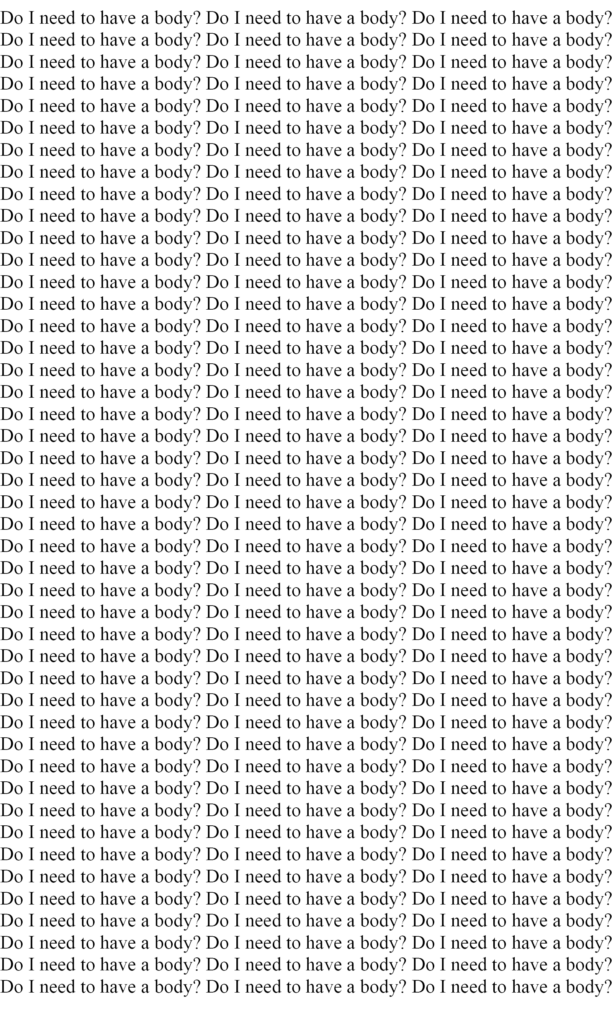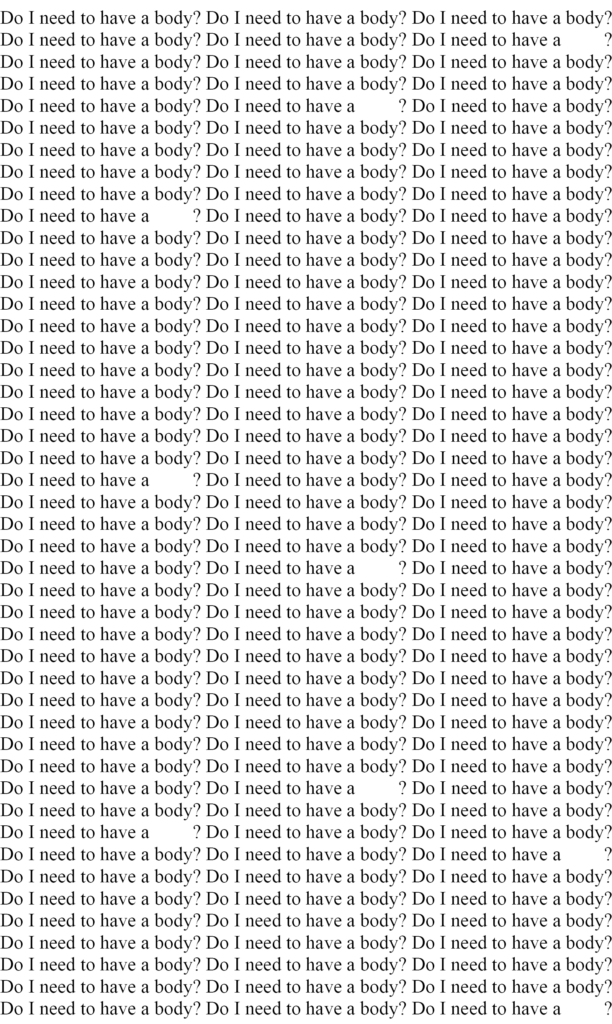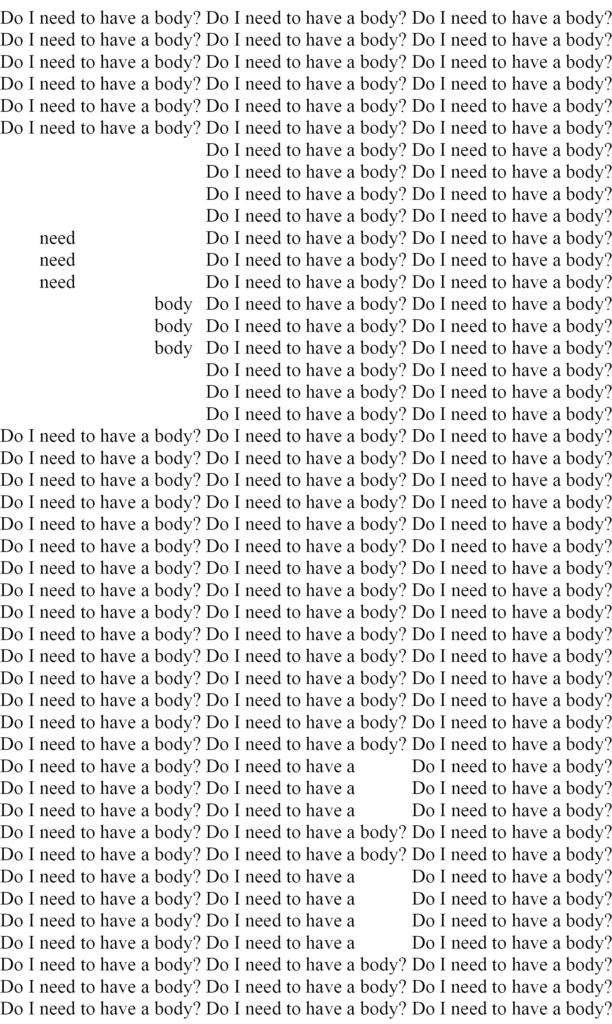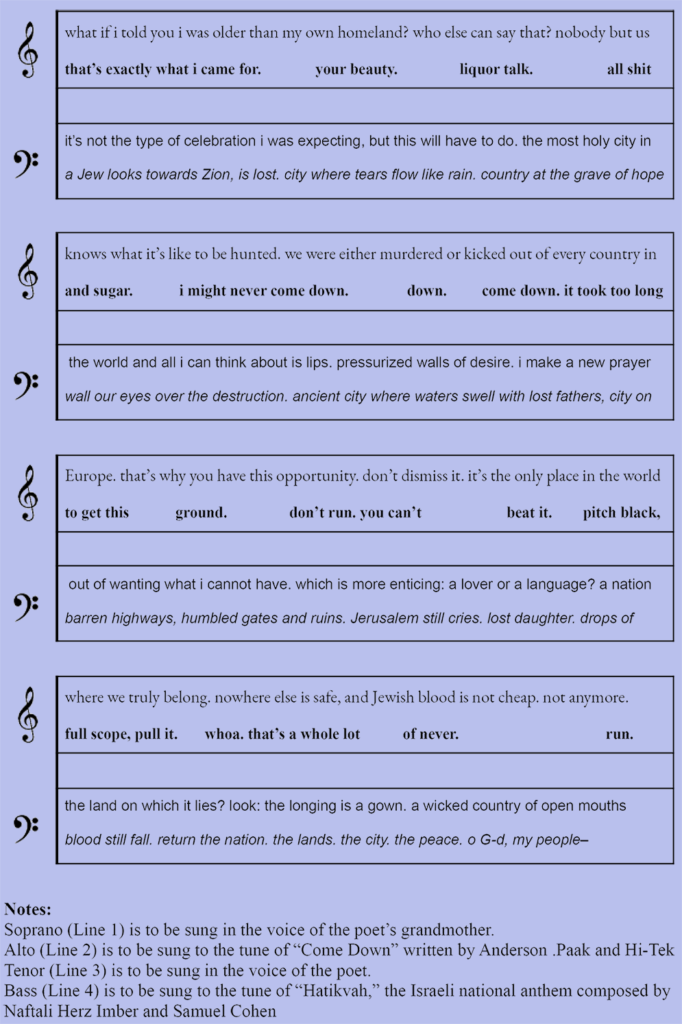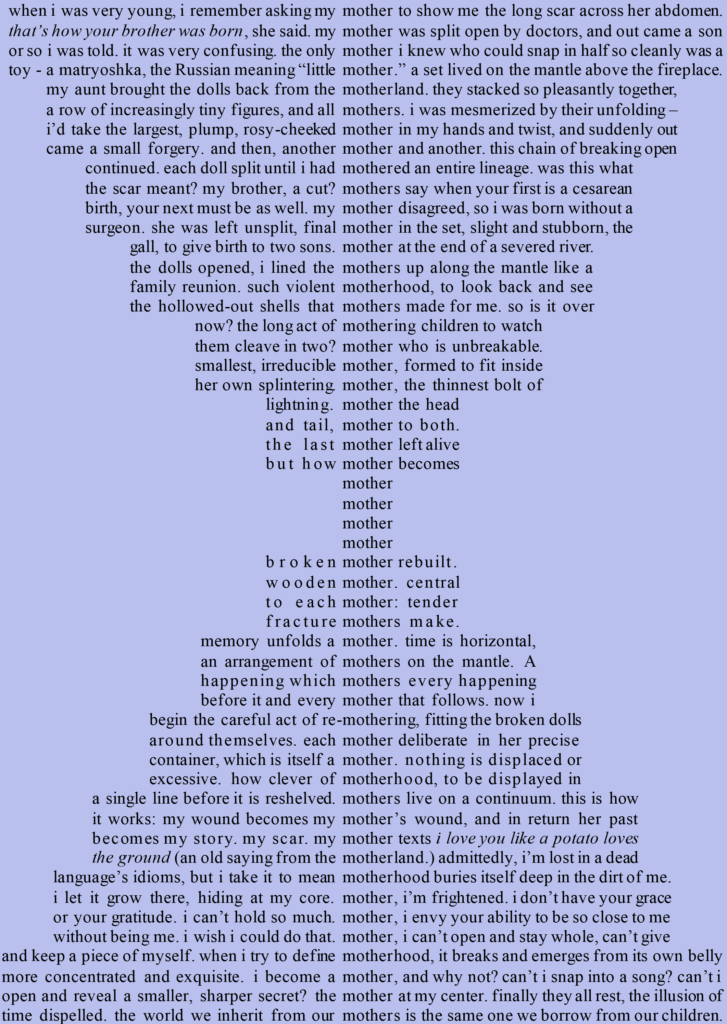The Chimera Pavilion
As they did at around four o’clock every Sunday, the brass band was setting up for a performance in the town park. Pauline Chartreux packed the chairs tightly just beside the pavilion, where nothing impeded the sun’s rays; no need to set them under the black locust trees for shade on this cool April afternoon.
“What a glorious spring day!” said Madame Socovic, handing her a coin. “It was about time we saw some nice weather again.”
The attendant mumbled only a vague pleasantry in response, for a stranger had caught her attention: an amiable-looking man in his forties, tall and thin, with dark hair. You could see in his eyes that he was compassionate and curious about his surroundings. He wore a well-tailored suit and stylish shoes.
Mayor Bergeron stood on the podium in his capacity as bandleader, whispering last-minute reminders to the musicians. By now nearly all the chairs were occupied, and people were turning around to comment on each other’s clothing and share their news.
Pauline Chartreux observed the newcomer out of the corner of her eye. She wondered what he might be after.
The mayor’s wife arrived, in a muslin dress that was too lightweight for the season, and took her seat beside Madame Socovic. Her husband raised his right hand, as though her arrival were all he’d been waiting for, and the band launched into “Tritsch-Tratsch-Polka.”
The stranger, who had been leaning against a tree trunk, now walked slowly around the pavilion. He looked to be in shock, but the attendant couldn’t imagine why; she saw nothing out of the ordinary about the concert or the audience. He came up to her, handed her a coin, and took a seat.
Pauline Chartreux sat down well behind the audience and crossed her hands over her belly, like a shepherdess minding her flock. The musicians performed fifteen pieces or so—an indiscriminate mix of classical repertoire, military marches, and recent pop tunes.
After the concert she started folding up the chairs. She noticed the stranger, still glued to his seat, keenly eyeing the musicians as they put away their instruments.
“Did you enjoy the concert, sir?” she called out to him. “The band is good, don’t you think?”
As if waking from a dream, the man said, “Beg your pardon? Oh, yes, of course. Do they play often?”
“Every Sunday. Other musicians play here sometimes, too. On Saturdays. Next week we’ll have a folk group from Limousin.”
But the man’s mind was clearly elsewhere. Smack in the middle of her sentence, he wished Madame Chartreux a pleasant day and left the park.
She saw him again every afternoon that week, scrutinizing the passersby for an hour or two. At the pharmacy one morning, she learned that he was a doctor by the name of Daniel Pile and that he’d just taken over a local practice upon the previous doctor’s retirement.
That Saturday, he arrived right on time for the folk music show. The audience took up only three rows and consisted mostly of young moms and little kids. As the performers began singing and dancing, the attendant observed Dr. Pile glaring at the audience members with evident annoyance. He got up and left during the second song.
*
As he walked briskly to the back of the park, Daniel Pile was thinking about the four patients who had come to see him that morning, making this his busiest day yet. Either all the local residents were in excellent health or they were reluctant to trust a doctor who was new in town. Maybe he ought to leave and start over somewhere else.
Pile noticed a man near the swan pond, dressed in blue, with an even, expressionless face. He started up a conversation and observed the man as they discussed the weather forecast and the bakers’ strike. His mouth moved only to let words out; it didn’t budge otherwise, neither to smile nor to frown. His eyes were a blank page. There wasn’t a wrinkle on his face, even though his gray hair suggested he was a man of a certain age. The doctor wanted to touch the man’s unlined cheeks but couldn’t think of any pretext to do so. Four of the musicians from the brass band in the town park, whom he’d initially taken for brothers, had that same face—featureless and free of scars or, indeed, of any distinguishing features whatsoever. And in the audience at the previous Sunday’s concert, Pile had spotted a half-dozen people suffering from the same anomaly.
Night was starting to fall; he thought it was time to go home. Then he saw a young woman approaching, her stride constricted to baby steps due to the tightness of her long green dress. Her straight brown bangs were long enough to cover her eyebrows, which made her look rather peculiar. She was making her way down the path, vigorously shaking a soda can. She stopped near the puppet theater and seemed to be looking for someone. Her gaze rested for a moment on Daniel Pile before settling on a red-haired young man sprawled on a bench. Affecting an inscrutable pout, she headed resolutely toward him across the park. Out of curiosity, the doctor followed her. The brunette held the can in her right hand, behind her back, and kept shaking it.
An old man was sitting at the foot of a sycamore tree. Beneath the brim of his off-white canvas cap, his face simply radiated impishness. Daniel Pile had a soft spot for faces like his, creased with the vestiges of childhood laughter. The old man looked up calmly at the woman, who was holding the soda can out to him.
“Could you help me? I have tendinitis and I can’t get this can open.”
He smiled and pulled the tab. The soda shot out of the can and splashed all over his face. The old man closed his eyes.
“Oh, I’m so sorry!” the woman cried. “I must have jostled it too much. Here, I’ll dry you off.”
A white towel appeared in her hand. She unfolded it and placed it over the old man’s face. With her fingertips she traced the curve of his eyebrows, his eye sockets and cheeks, his nose and mouth and chin; she swept her fingers across his forehead. And then she gathered together the corners of the fabric, which remained stiff and rounded. She walked away, apologizing once again, upon which the man replied that the pleasure was all his.
Daniel Pile looked at the old man’s face and was astonished by what he saw: not a single feature, no expression whatsoever. It would be impossible to guess his age. The charming air of mischief he’d had just moments before was gone. There was nothing left of him on which to pin a description, aside from his notably large ears.
Pile went up to him and said, “I saw what just happened to you, sir. I’m a doctor. How are you feeling?”
“Very well,” the man said, showing neither surprise nor interest. “No big deal, just a few drops of soda.”
“But what about your face?”
“What, are you afraid the sugar will attract wasps?”
Up close, the doctor couldn’t see a single hair or pore on the man’s face, nor even the tiniest of capillaries. The face was human, but it was as though it were covered with a taut layer of soft silk. The old man left, taking tiny steps, and Pile followed behind him. The park was about to close; security guards on mopeds were chugging along on the paths, asking folks to leave.
In the weeks that followed, Dr. Pile returned frequently, bringing books and medical journals with him. He exchanged pleasantries with the attendant, then spent long hours sitting on a bench near the main entrance. Now and then he saw featureless beings pass by. Aside from a few clues as to their age, gender, and (in some cases) occupation, there was no telling them apart.
It took three weeks of waiting, but finally he saw the young brunette again. This time she was wearing a white tulle skirt and a long yellow tunic. Holding a soda can, she walked past the doctor without so much as a glance in his direction. No one would call her a beauty—her nose was a bit too prominent for that!—but her eyes were distinctive enough to compensate. She took the circular path alongside the swan pond. A woman in her fifties, knitting in the shade of a linden tree, looked up at the sound of someone approaching. Her pink complexion was a perfect match for the yarn she was using. The strange brunette held out the soda, pointed to her right hand, and said she couldn’t open it.
Pile hurried over. “Allow me,” he said, grabbing the metal cylinder.
The young woman looked at him, first with surprise, then with rage. Without breaking eye contact, he slid his index finger over the tab.
“Come to think of it,” he said, “why don’t we have a soda together, at the café across the street?”
Sitting in the sun outside Le Caboulot, the stranger seemed more wary than aggrieved as Daniel Pile explained who he was and how things had gone for his first few months in town. Her name was Alice Lespovy, she told him, and she’d always lived in the neighborhood. She’d gotten married young, to a piano teacher. He’d disappeared two years later, never to be heard from again.
Upon hearing the word “piano,” Pile took a harmonica from his jacket pocket. He put it to his lips and played a few muted notes. Alice’s eyes went misty.
“Stop. Please stop. I hate the harmonica.”
He immediately put the instrument away.
“My father was a country doctor,” he said. “He’s the one who taught me music.”
She quickly pulled herself together and said, “You followed in his footsteps, then?”
“I was a florist first, then an insurance underwriter. It wasn’t until my wife and son died that I took an interest in healing people. That’s when I enrolled in medical school.”
Silence.
Alice was starting to stand up when Daniel Pile asked her, “Why do you do it?”
“Do what?”
“You know perfectly well what I mean. You wipe your victims’ faces and take them with you.”
She snickered. “My ‘victims’! That’s a bit much. I don’t hurt them. And I certainly don’t ‘take their faces’! They still have all their human characteristics: a nose, a mouth, a pair of eyes—”
“But not what matters. Not what makes them unique, what makes them distinctive. I’ve spoken with several of them. It’s not just that blank mask they all wear; their minds are empty too. They take no interest in anything. They come and go, they work and eat and keep busy, but they have no emotions.”
“And don’t you think they’re happier that way, Dr. Pile?” she said, emphasizing his title.
“What’s your goal?”
She shifted her weight and nibbled on her lower lip.
“Come along with me, Daniel. You’ll understand.”
They climbed Trois Grenadiers hill, up toward the water tower. Pile took the young woman’s hand. She didn’t pull away, but her smile was noncommittal. She led him to a cul-de-sac and opened a gate, revealing an elegant stone house surrounded by high walls. They entered, walked through a dark passageway, and came out again through another door. To Pile, it seemed like he was back where he’d started. In the middle of the yard was a band pavilion. Several musicians had already taken their places; some audience members were seated as well, patiently awaiting the start of the concert. A bit farther away was the cabin where Madame Chartreux stored her chairs. The doctor went up to an old lady in a purple dress—or, rather, a mannequin dressed in purple. Her face was wrinkled to perfection. Daniel touched it with his fingertips and found it warm and alive. Then he spotted the man with the off-white cap, the one whose features he’d watched Alice steal. There was a wax figure of a standing woman, dressed like the park attendant, but her face was just a smooth mass.
“That’s right,” Alice said. “Madame Chartreux is one of my clients.”
While they drank tea together on the veranda, Pile’s curiosity got the better of him.
“On a technical level, how do you do it?”
She threw her head back and burst out laughing.
“What, you really think I’m going to tell you?”
“That towel you use to take away your so-called clients’ features—it must be soaked in some kind of substance. You could tell me that much, at least.”
“It’s a family secret. My mother was a chemist; I can’t say any more about it. But there’s no greater mystery about it than there is in, say, photography.”
“But why—”
“Shut up and kiss me, Daniel. I’m dying for you to kiss me.”
*
Pile got used to seeing the wax figures installed in the garden. Sometimes he even helped his girlfriend freshen them up. They were sheltered by an electric tarp that automatically unfurled at the first hint of rain, but even so, they took a beating from exposure to the wind. There were leaves to pick off of them and dust to remove from their clothing; their hair needed primping now and then. Madame Chartreux’s double still hadn’t gotten her human face. The attendant had twice refused to open Alice’s soda can, on the grounds that “those chemical drinks are bad for your health.” Daniel Pile thought she might be smarter than she looked. Joining the crowd around the pavilion were Madame Socovic, the watchmaker, and the hairdresser, and two musicians had joined their colleagues on the bandstand.
*
The first time Alice went to the little house behind the town hall, Daniel Pile showed her around his living quarters, the examining room, and even the cellar.
“And what’s in there?” she asked, pointing to a door next to Daniel’s bedroom.
“My butterfly collection.”
“Show me.”
He took a key from his pocket and opened the door. This small, square room with the shutters drawn housed the most stunning butterfly specimens Alice had ever seen. They were arranged by color. To her right were the blues, ranging from lightest to darkest, followed by the purples and pinks; to her left, yellows and oranges, greens and browns. In the center were blood-red and black butterflies, one of them a giant. There were only a few white butterflies, but their wings had a satiny sheen. Alice expected the labels beneath each specimen to be in Latin, but instead there was a first name, followed by an initial and a date.
“Why do you give them names?”
“Why do you put real faces on your wax figures?”
In a display case near the door were two magnificent butterflies. One was a tiny specimen, pale green with glints of white; the larger one was midnight blue with specks of gold.
“Why are they kept separate from the rest?”
“They’re the first two I caught. A special souvenir.”
“Where do you catch them? In East Asia? There are no butterflies around here with such gorgeous coloring.”
“Oh, they’re around,” Pile said breezily, “if you know where to look.”
On her way home, she stopped by the town park and asked the attendant her opinion of Daniel Pile.
“Is he a good doctor? What are people saying about him?”
“That he’s trustworthy enough,” Pauline Chartreux told her, “if you’ve got the flu or a nail infection. But apparently he has some awfully strange methods when it comes to caring for the dying. He insists on staying with them, alone, and playing music for them right up to the end. But, hey, maybe that helps them get to the other side!”
*
Daniel was more tender toward Alice here at his house, more relaxed than he was at hers, where he was always afraid he’d fall asleep and she’d take advantage of the opportunity to steal his face. In his own home, though, he felt secure. One day he told her as much.
“Don’t worry,” she said with a laugh. “Your face is of no interest to me. You haven’t been living here long enough.”
He understood then that she was in it for revenge.
“Nobody in town seems surprised to see well-known people suddenly walk around with blank faces. Don’t you find that odd, Alice? And why no reaction from the families of the faceless?”
“You don’t know them, Daniel. We live among apathetic people. Lacking in intelligence, if you ask me. It’s like they’re all bathed in blissful, self-satisfied ignorance. Before and after my treatment, there’s hardly any difference.”
Pile had noticed this phenomenon before. This place had no character to speak of; the town planning was vague at best, and the population was chockablock with morons.
*
One evening he returned home to find Alice standing at his door, shivering in the light drizzle.
“I’ve been here for an hour,” she complained. “Where were you?”
“With one of your ‘clients,’ as you put it. Monsieur Granier. He just died.”
She followed him into the kitchen, where he poured himself a glass of wine.
“Are you in a bad mood because you couldn’t save him?”
“He didn’t have a butterfly!” he blurted. “Just like last week, with Madame Leplat. This maddening compulsion of yours is impeding my work.”
Alice asked him what he meant, but he demanded she leave.
By the time Alice returned the next day, he was in a better mood and treated her with kindness. After they made love, she asked him, “What do you play for your patients who are, you know, transitioning? Are we talking ‘Camptown Races’ or ‘Nearer, My God, to Thee?’”
He took his harmonica from his jacket pocket and put it to his lips. A melancholy tune filled the room. Alice ran, screaming, out to the hallway, her eyes wild and her hands pressed flat against her ears. He caught up to her in the living room and held her close.
“What are you afraid of? You think the tune kills off everyone who hears it? If that were the case, I’d have kicked the bucket long ago.”
“You know I hate the harmonica. It sends shivers down my spine. The very thought of you playing it at moments like those . . .”
Later, while making coffee for her, he began to tell his story.
“It was nighttime. We were driving back from Italy. My wife and my son were asleep. It was raining. I don’t remember what happened. When I opened my eyes, the car was in a ravine. A tree had broken its fall. I managed to make my way out. My leg was injured. My wife and Frédéric had been ejected from the car. They were lying farther down the hill, a few yards apart. I crawled down to them. We were on a mountain road; I had no chance of getting help for them in time. I instinctively took out my harmonica and played them the tune you heard earlier, to comfort them. I don’t know who wrote it, but my father used to play it for me when I was sick. He said he’d learned it from a fairy. Frédéric died right away, with his head on my knees, illuminated by a headlight from our car. That’s when I saw something emerging from my son’s right eye. It was hesitant, quivering. I kept blowing into my instrument. It was the only thing I could do to contend with my fear and despair. Something came detached from the eye—just a shiver of pale green. I couldn’t understand. I grabbed hold of the thing and saw that it was a butterfly. My son kept a small tin box in his pocket for his marbles, a whistle, all his little-boy treasures. I emptied it out and put the insect inside. And then a few minutes later, his mother died too. At the sound of my harmonica, a butterfly slipped out of her right eye. A gorgeous one, the deep colors of midnight.”
When Alice left, the doctor understood that she wouldn’t want to see him anymore.
*
A few weeks went by. His patients presented with insignificant maladies: sore throats, gastritis, sprains. Nothing to suggest an impending influx of Lepidoptera. He’d only been present for five or six deaths since he’d set up his practice here, and two of those didn’t count. As winter approached, Pile hoped that the damp cold would bring its fair share of germs to town, but the natives were a sturdy bunch. He’d come to the wrong place for butterfly hunting.
One Sunday afternoon he went to the town park. Madame Chartreux, who noted what a long time it had been since last she saw him, was all smiles. The brass band’s concert was about to start. More than half of the musicians on the bandstand, the conductor among them, were identical. Pile looked around at the audience. He recognized the mayor’s wife by her jewelry, the pharmacist by his goiter, and the parish priest by the prayer book sticking out of his pocket.
He ran to Trois Grenadiers hill in a rage. No sooner had Alice opened the door than he was ordering her to put an end to her activities and threatening to report her to the police if she persisted.
“I suppose you find it more proper to lie in wait for people to die so you can pin some poor creatures for your collection?”
“You’re so self-centered. You know you’re putting me at a disadvantage when you steal faces. It’s even occurred to me that you’re purposely targeting the old and the weak, the ones most likely to die soon, just to make me watch them for nothing.”
Her only reply was a disdainful smile.
“This collection matters so much to me,” he continued. “In the end, I’m not even doing anything wrong; I just play music for the dying. I make it easier for them.”
*
Dr. Pile’s office was closed for over a month. As luck would have it, he ran into Alice in the street as soon as he returned to town.
“Been away?” she asked, gesturing at his suitcase.
“Indeed. I was in India.”
“On vacation?”
“No. I was training at a medical research lab.”
“Oh,” she said indifferently. “I’ve heard people die in the streets there. I suppose you must have dozens of butterflies with you.”
During his absence, Alice had been busy as a bee. Plenty of folks had agreed to open the can. It was high time he intervened.
Two weeks after his return, he was called to a young man’s bedside and was unable to save him. The boy’s mother died shortly thereafter, followed by his sister. Once the tally of the dead had risen into double digits, newspapers started running headlines about this mysterious epidemic. The symptoms resembled those of a few diseases endemic to Asia, but specialists couldn’t reach a consensus about which one this was. At last Daniel Pile had the practice of his dreams. His collection kept growing.
One day a lady came to fetch him for her neighbor, who had been sick for several days but refused to see a doctor.
“Especially not you,” the lady said. “But she’s in a very bad way this morning, and the other doctors are busy, so I came anyway.”
He was not surprised when she led him to Alice’s house. Upon entering the bedroom, he saw that the neighbor wasn’t mistaken: Barely a glimmer of life remained in the young woman’s eyes. Nevertheless, Pile sensed that she could recognize him. He took her hand and began keeping watch.
Knowing how she abhorred the harmonica, he waited until the last possible moment to play his melody. When it was all over, he went down to the garden for a final visit to the band pavilion and its habitués. A violent wind had been blowing for several days, and most of the wax figures looked the worse for wear. A few had fallen over and broken in half, their faces vibrant as ever despite being covered in dust. He returned home, now and then patting the little tin box in his pocket. It contained one of his finest butterflies: orange, with streaks of gray and brown.
Translator’s Note:
Like much of Monique Debruxelles’s short fiction, “The Chimera Pavilion” is set in a funhouse-mirror version of rural France. These small towns may appear quaint and postcard-perfect from a safe distance, but a closer look reveals them to be rife with hazards. Upon arrival in any of Debruxelles’s fictional villages, tourists and newcomers ought to be given fair warning: If the supernatural forces don’t kill them, the local gossip and long-simmering resentments between neighbors just might.
When we first meet Daniel Pile, he is getting settled in a new town and struggling to keep his newly acquired medical practice afloat. Many residents seem to be avoiding treatment even though they suffer from a novel affliction characterized by a “faceless” appearance; worse still, he seems to be alone in noticing the preponderance of expressionless faces and vapid personalities among the local population. Just when the reader might expect him to investigate whether there’s something in the water, Dr. Pile discovers instead that there’s something in the soda cans: a mysterious chemical used by a grudge-holding local woman to wipe away her neighbors’ facial features. But saving his new neighbors from the threat hiding in plain sight isn’t a simple matter for him, in practical or ethical terms. He’s a perfectly capable physician, but his preferred medical device is the harmonica he plays when patients are on their deathbeds—and that music is intended for his benefit, not theirs.
In addition to Debruxelles’s hauntingly visceral imagery, the pleasures and challenges of translating a story like “The Chimera Pavilion” extend to its pacing. The revelation of Dr. Pile’s ulterior motives is gradual, and so is the change in tone—a vague unease that intensifies almost imperceptibly into a pervasive sense of dread. Word choices naturally contribute to that effect, but in the process of translating this story, I found punctuation and paragraph breaks to be just as important.
One key example of this falls early in the story, when we learn that Dr. Pile has concerns about the viability of his practice: “Either all the local residents were in excellent health or they were reluctant to trust a doctor who was new in town. Maybe he ought to leave and start over somewhere else.” Looking back at this passage with the knowledge we’ve gained by the end of the story, Dr. Pile’s meaning is brutally clear—his “butterfly hunting” would be easier in a place where more people were both sick and trusting of doctors—but without that context, it seems harmless. The reference to the locals being “in excellent health” initially sounds like a joke rather than a complaint; their supposed reluctance to trust an outsider would provide a logical explanation for his business troubles. Moreover, I think it’s natural that we as readers fill in some context that isn’t strictly on the page: “Maybe he ought to leave and start over somewhere else” because he needs to make a living or because he wants to find a community where his services are needed and appreciated. While the original French text has no paragraph break after that sentence, I’ve inserted one in the English translation to make this brief passage more visible on the page and encourage readers to linger on this brilliant moment of subtle misdirection.

Monique Debruxelles is the author of four short story collections and co-author of three crime novels. Her short fiction appeared for the first time in English in 2022, in The Southern Review. Retired from a career in the civil service, she lives in a suburb of Paris and writes the mystery and magic that lie beneath even the most mundane routines.

Laura Nagle is a translator and writer based in Indianapolis. Her translations of prose and poetry from French and Spanish have appeared in journals including AGNI, The Southern Review, and The Los Angeles Review. Songs for the Gusle, her translation of Prosper Mérimée’s 1827 hoax, La Guzla, is forthcoming from Frayed Edge Press.

 BACK TO ISSUE
BACK TO ISSUE





